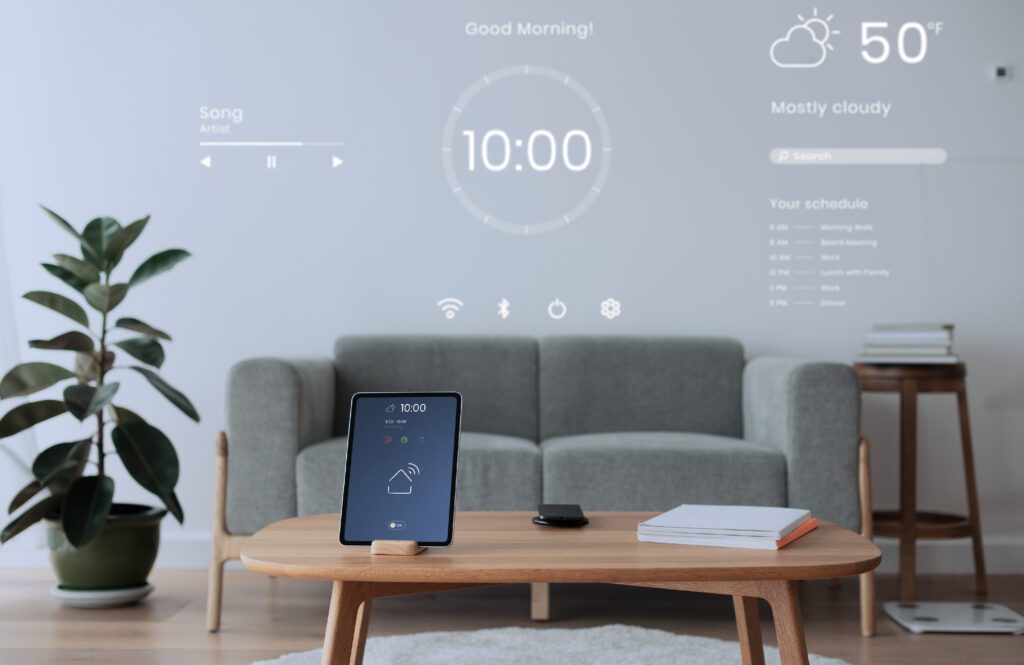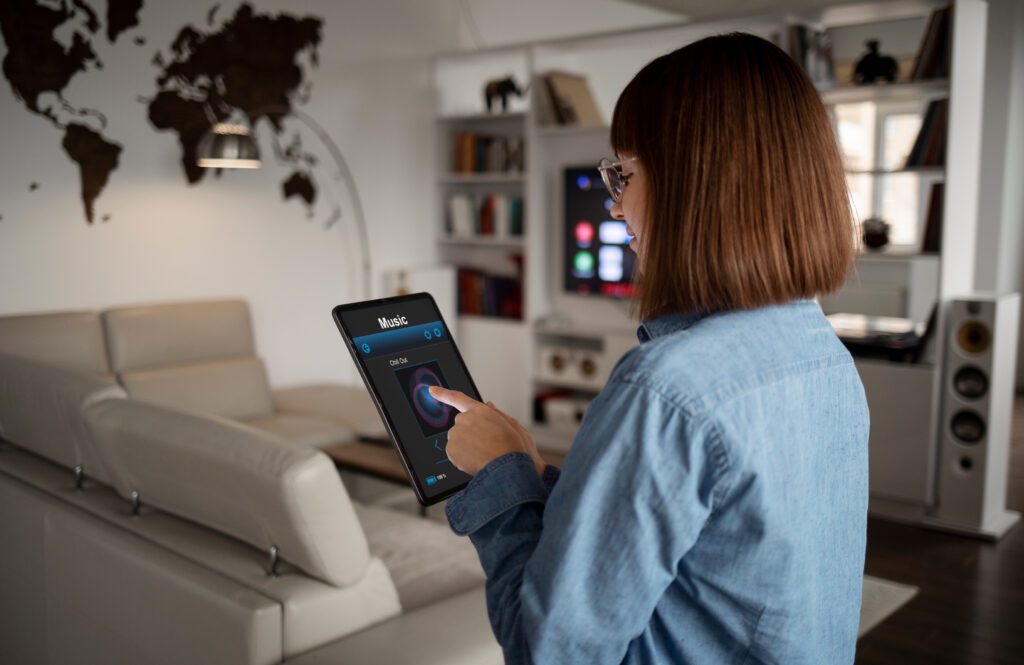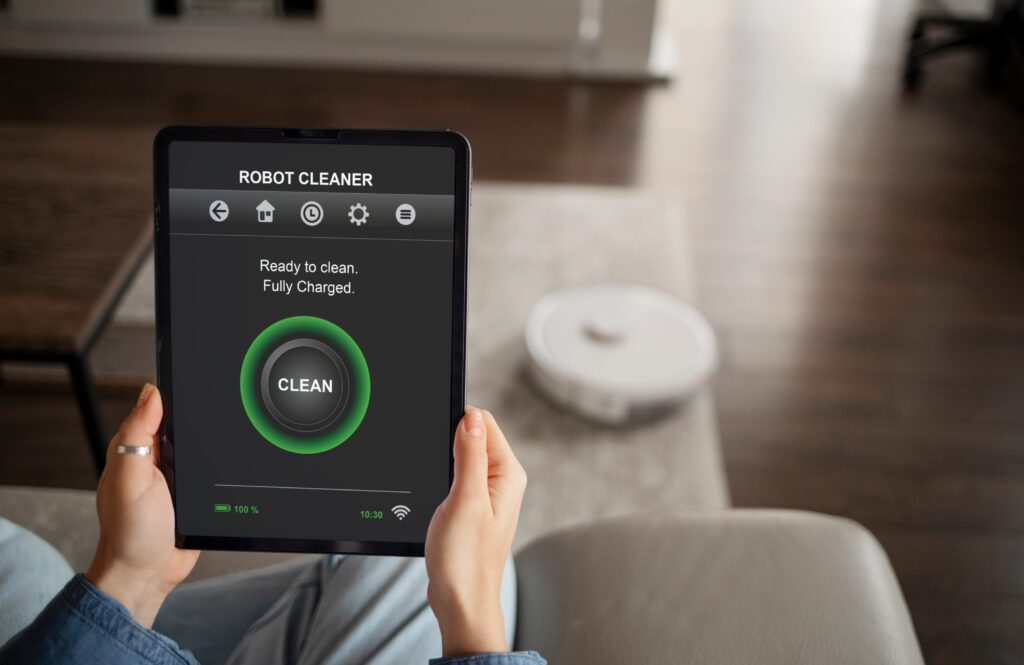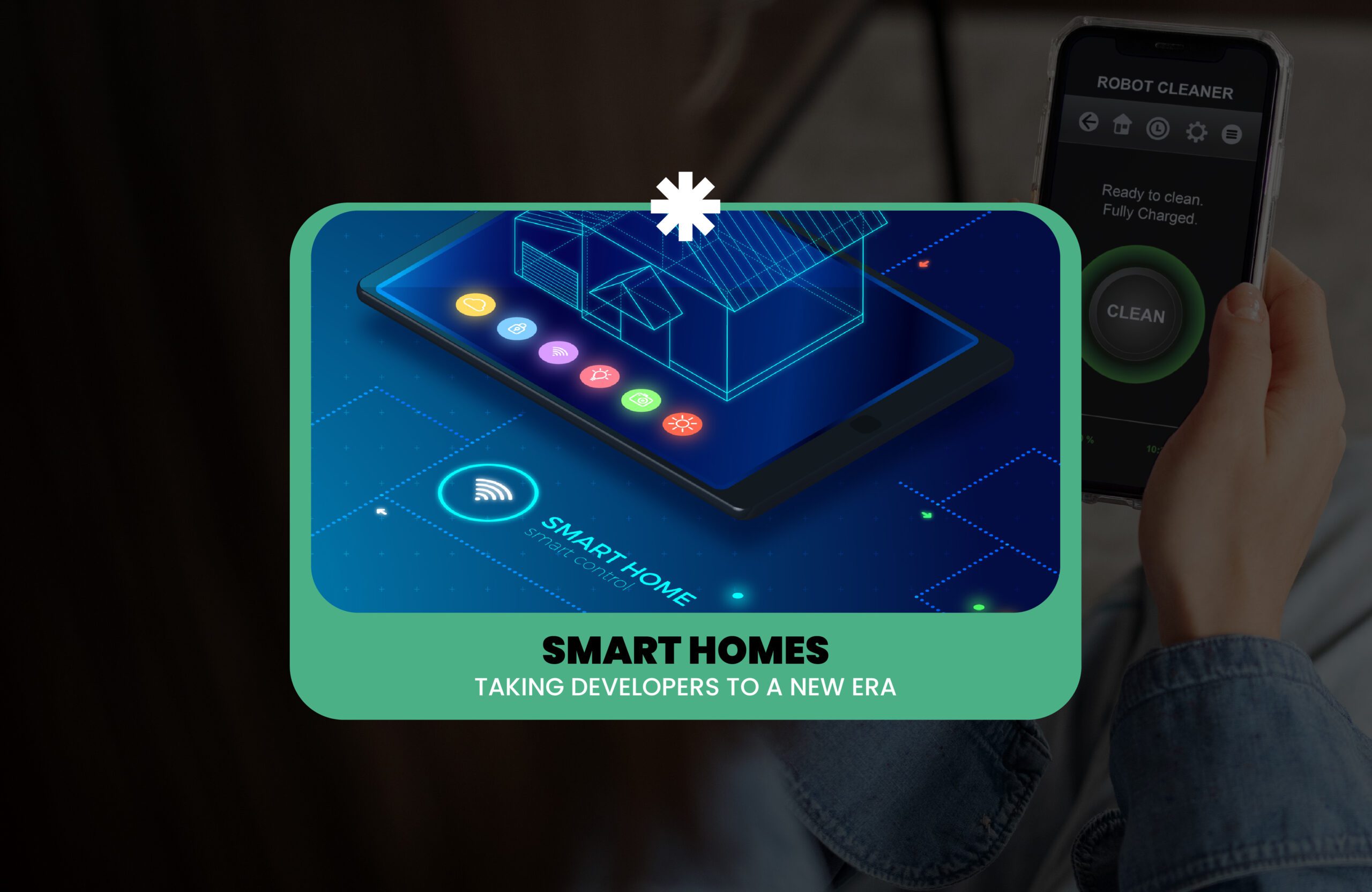smart homes are modern household arrangements in which you can remotely control appliances and devices using an internet connection from anywhere using a mobile or networked device. The devices in a smart home are linked through the internet, enabling users to manage functions such as home security access, temperature, lighting, and the home theater system remotely.
Smart Village: Egypt’s Premier Business and Technology Hub
How do smart homes work?
Smart homes can be equipped with either wireless systems, hardwired systems, or a combination of both. Wireless systems offer easier installation and are cost-friendly, with the ability to support intelligent features like lighting, climate control, and security. However, they often require strong Wi-Fi coverage and broadband service throughout the house, which may necessitate range extenders or hardwired wireless access points.
In contrast, hardwired systems are known for their reliability and security, making them more challenging to hack. They can also enhance the resale value of a home and are easily scalable, making them the preferred option for new builds or major renovations. However, installing a luxury hardwired system can be quite expensive, requiring significant investment and space allocation for network hardware equipment, including Ethernet cables.

What do smart home systems use for?
Lighting
The advancements in lighting technology have given homeowners more control and convenience. With a mobile phone, tablet, or custom remote, you can now turn lights on and off, set schedules, and adjust them to change with the sunrise and sunset. Motion-activated lighting is also possible. Smart bulbs can connect via Wi-Fi to provide statistics and metrics to your phone. This category of lighting can also include products like automatic blinds programmed to close at sunrise and electronic curtains that can be controlled with a handheld device.
Furthermore, the intelligent lighting category encompasses products that regulate or manipulate natural light. For example, automated blinds can be integrated and programmed to close or open based on sunrise and sunset schedules. Similarly, electronic curtains enable users to effortlessly adjust their blinds using a handheld device, offering convenience and control over their indoor environment.
Audio/Visual
In smart homes, entertainment products have become increasingly interconnected, allowing for seamless control with a single remote. Televisions and speakers now boast advanced features, enabling them to be activated at your command through applications. This includes the ability to set schedules and even control them using just your voice.
Security
Enhancing the security features is one of the most practical aspects of a smart home. Numerous products now incorporate camera capabilities to track motion, record videos, and facilitate live video feeds. These cameras can be integrated to work with a doorbell system or configured to monitor specific areas of your property. Additionally, these video feeds may enable video calls with individuals at your door and also offer audio communication. Furthermore, modern security suites are a popular addition to many smart homes. These kits often include motion sensors to detect unauthorized entry, home monitoring services, notifications for suspicious activities, and the ability to lock doors or windows remotely using a smartphone.
Other
A significant portion of smart homes revolves around digital assistants or home hubs. These devices are typically voice-activated and can execute commands, answer questions, manage your calendar, schedule conference calls, and provide alerts. While not directly linked to the home infrastructure, these digital assistants offer extensive control over smart devices, schedules, and statuses.
Advantages of owning smart homes:

By incorporating a smart home technology system, homeowners can experience unparalleled convenience and efficiency. Gone are the days of managing various home features with different devices, as now all these can be controlled through a singular device, typically a smartphone or tablet. This centralized control allows users to seamlessly adjust appliances, thermostats, lighting, and more, enhancing the overall home management experience.
Furthermore, these systems connectivity to portable devices gives homeowners a sense of security. They can receive real-time notifications and updates about their homes, even when they are away. For example, with smart doorbells, homeowners can remotely interact with individuals at their doors, ensuring their home’s safety. The ability to monitor and regulate internal temperature, lighting, and appliances further adds to the appeal of these systems.
While the initial setup cost may seem significant, the potential long-term cost savings for homeowners are substantial. Innovative systems can facilitate the efficient usage of appliances and electronics, leading to noticeable reductions in energy expenditure. Ultimately, the benefits of a smart home technology system extend beyond just convenience, offering homeowners the prospect of both streamlined living and economic advantages.
Developers using the smart homes concept:
Developers are assuming the next-generation era to drive a revolution, harnessing the power of innovative concepts to minimize energy consumption. This momentum aims to reduce overall energy usage and pave the way for a more sustainable future.
Examples of this developer:
Msquared developments:
Trio
At Trio, every unit has a smart home system that allows residents to effortlessly control their lighting, curtains, windows, doors, air conditioning, audio & visual system, and security from anywhere outside the compound. Trio is committed to a sustainable future by prioritizing eco-friendly practices in its operations, creating a healthier environment for its community and future generations. By harmonizing with the site’s natural surroundings and integrating an advanced sustainable system, Trio conserves energy and enriches residents’ lives through innovative smart solutions.
Palm Hills
Badya
Badya compound Executes various intelligent technologies using the smart home concept that maintains security measures and improves residents’ overall quality of life. Badya Palm Hills focuses on sustainability and combines cutting-edge solutions such as facial recognition and artificial intelligence to achieve these objectives. Emphasizing eco-friendly practices, Badya is dedicated to curbing energy and water usage, continually striving to introduce innovative technologies that promote resource efficiency. Badya has set a target to reduce water and electricity consumption by approximately 30% and has already made significant strides by conserving up to 25% of freshwater through the usage of grey water for local sanitary needs and implementing sewage water treatment for irrigation purposes.
TMG
Noor City
Noor City epitomizes an intelligent urban landscape that propels the widespread embrace of sustainable energy practices. At the forefront of this initiative lies the comprehensive integration of solar panels, offering an alternative energy source to curtail reliance on conventional electricity consumption. Carefully positioned on sun-drenched surfaces, these solar panels are pivotal in fueling imperative public amenities, including street illumination, water purification, and waste recycling.
Noor smart city concept extends beyond public infrastructure to the very homes of our residents. Each residence is equipped with energy-efficient appliances that not only monitor and manage energy usage but also contribute to a more sustainable lifestyle. The integration of advanced security systems, including cameras, sensors, and alarms, ensures the safety of our residents, providing peace of mind in a rapidly evolving world.
Moreover, implementing automated lighting systems within these intelligent abodes fosters operational efficiency by intelligently regulating lighting usage and customizing lighting configurations tailored to distinct activities. Complementing this, climate control devices operate autonomously to uphold optimal temperature settings while adeptly predicting activation and deactivation cycles based on occupancy patterns.
Although the Noor mobile application stands as a testament to the city’s commitment to elevating the smart home experience, with its user-friendly interface, residents can seamlessly access and govern their smart homes from any location, transcending physical boundaries to nurture an unparalleled sense of convenience and control.
Midar
Mostakbal City
Mostakbal City, the inaugural smart green city to the east of Cairo, embodies a pioneering approach to contemporary living. Extensive market research underpins its creation, ensuring alignment with developers’ and investors’ requirements and aspirations. The city incorporates essential amenities and expansive green spaces meticulously designed to promote enduring, sustainable development that caters to current and future environmental needs.
Outro:

Owning A smart home is significant because it can enhance energy efficiency within a household thats why homeowners can manage and monitor their energy consumption more effectively, reducing energy waste and lowering utility bills automation and remote control features enable residents to save time.
Smart home necessitates an initial investment in acquiring the requisite technology, the potential benefits far outweigh the costs. Additionally, familiarizing oneself with the operation of smart devices involves a learning curve, which may involve additional expenses for training or professional assistance. Despite these upfront expenditures, the long-term advantages of time savings and potential utility cost reductions make a smart home financially attractive.
All information needed for sale, purchase, or rental on Estatebook



